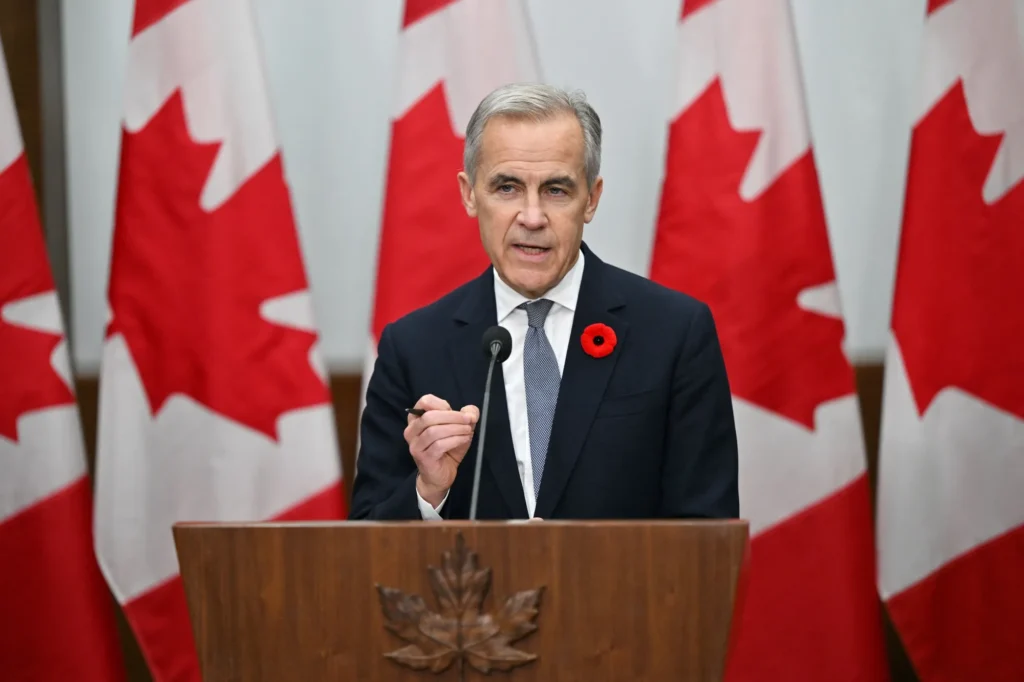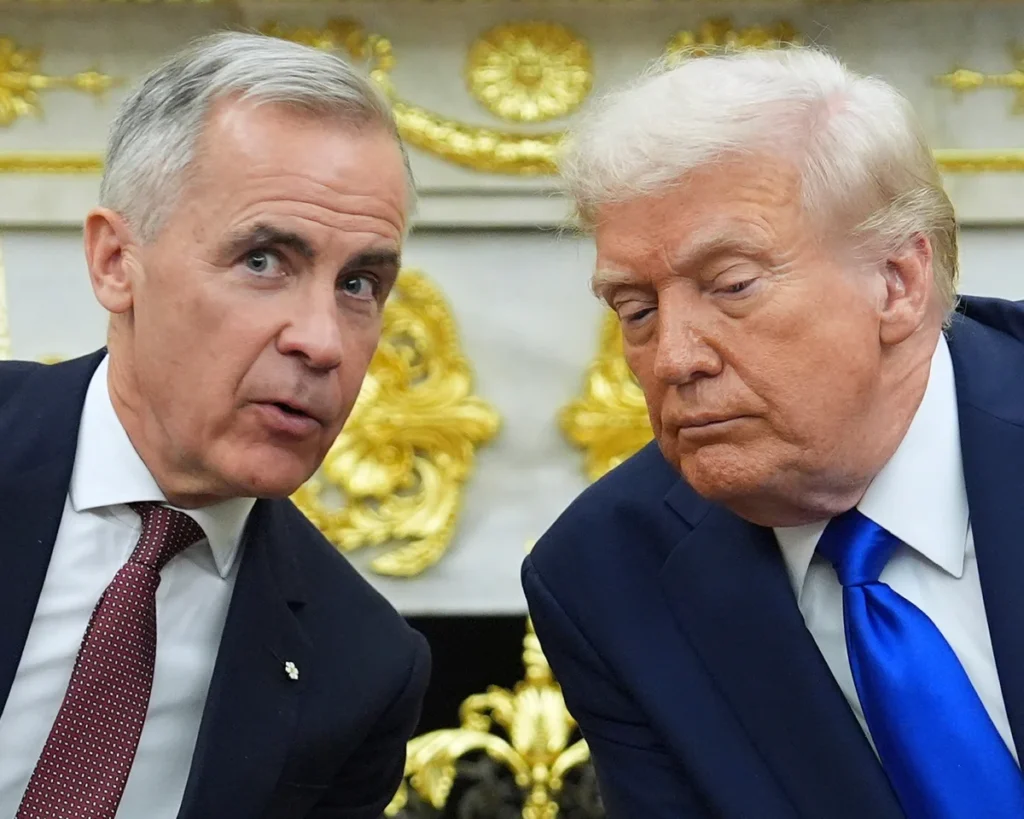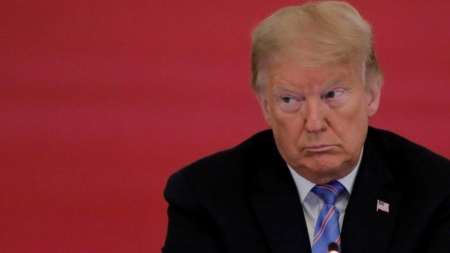Canadian Prime Minister’s apology for Trump, Mark Carney apologized to U.S. President Donald Trump after an Ontario-funded anti-tariff advertisement featuring Ronald Reagan caused diplomatic tensions, trade disruptions, and renewed debates over Canada’s internal coordination and foreign policy responsibility.
CANADIAN PRIME MINISTER’S APOLOGY FOR TRUMP: CARNEY’S APOLOGY AND THE ANTI-TARIFF CONTROVERSY
Canadian Prime Minister’s apology for Trump, a recent diplomatic episode between Canada and the United States drew global attention when Canadian Prime Minister, Mark Carney issued an apology to U.S. President Donald Trump. The controversy erupted after an advertisement funded by Ontario’s provincial government aired in the United States, criticizing American trade tariffs by featuring a 1987 speech from former President Ronald Reagan.

The ad’s message, that tariffs harm workers and fuel trade wars, was seen by Washington as an attempt to embarrass the current U.S. administration. Despite Carney’s insistence that his federal government had discouraged the ad from airing, its release during major U.S. broadcasts such as the World Series provoked a sharp response from President Trump.
Canadian Prime Minister’s apology for Trump. He denounced the ad as “dishonest propaganda, claiming it misrepresented Reagan’s views and interfered with ongoing trade negotiations. Soon after, the U.S. administration suspended talks on trade policy and imposed a 10% tariff hike on Canadian exports. What began as a provincial media campaign quickly evolved into a diplomatic crisis threatening the stability of North American trade relations.
DIPLOMATIC RESPONSE AND THE APOLOGY
Canadian Prime Minister’s apology for Trump, during the Asia-Pacific Economic Cooperation (APEC) summit in South Korea, Carney publicly confirmed that he had personally apologized to President Trump at a dinner hosted by the South Korean president. He explained that the ad was not authorized or supported by his federal administration, emphasizing that it was the initiative of Ontario’s premier, Doug Ford. “I did apologise to the president,” Carney told reporters. “The president was offended, and rightly so.”
Read also: TANZANIA’S SAMIA SULUHU REELECTION
President Trump acknowledged receiving the apology, describing Carney’s gesture as the right thing to do, but he made it clear that the diplomatic issue was far from settled. “What they did was wrong,” Trump said, reiterating his disappointment while praising Carney for his professionalism. The apology served to cool immediate tensions, but it did not reverse the tariff measures nor restart trade negotiations.
For Canadian Prime Minister’s apology for Trump, the challenge was twofold, to mend Canada’s external relationship with its most important trading partner and to address internal divisions between the federal and provincial levels of government.
The episode revealed how quickly domestic political actions can impact foreign diplomacy. By running an advertisement in U.S. markets without federal approval, Ontario’s government blurred the boundaries between provincial expression and national foreign policy, forcing the prime minister into damage control.
IMPLICATIONS FOR FUTURE RELATIONS OF U.S. AND CANADA

Canadian Prime Minister’s apology for Trump, the fallout from the advertisement underscores the fragility and complexity of economic relations of U.S. and Canada. With more than 75% of Canadian exports heading to the U.S., any disruption in trade can have far-reaching consequences. Carney’s apology was therefore not merely symbolic but essential to protecting Canada’s economic interests. His statements also hinted at a broader shift, a desire to diversify Canada’s trade networks and reduce reliance on its southern neighbor.
Nevertheless, the incident raised questions about the coherence of Canada’s domestic governance. Provincial governments possess autonomy in economic policy, yet their actions can have international consequences. The lack of coordination between Ottawa and Ontario highlighted a communication gap that could undermine Canada’s diplomatic credibility.
Looking ahead, Carney’s government faces the challenge of re-establishing trust with Washington while ensuring internal political unity. Clearer guidelines between provincial and federal responsibilities in matters affecting international relations will be vital. The anti-tariff advertisement serves as a cautionary tale of how political messaging, when mismanaged, can strain even the most enduring alliances. In apologizing, Carney took a step toward reconciliation, but the episode has left a lasting reminder of how fragile diplomacy can be in an age of instant media and political polarization.







